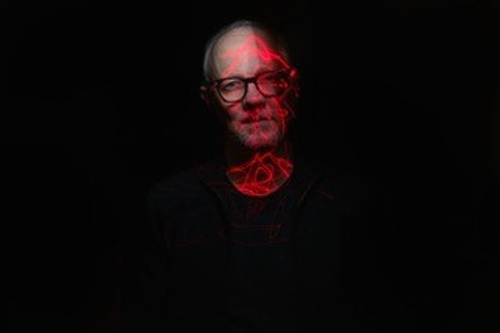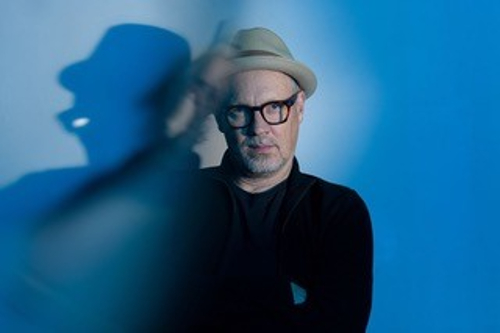Peter Knight came to the trumpet early and to jazz late. Yet he’d only been playing the music for a decade before he began wondering if it were possible to put a more local – read Melbourne, Australia – slant on it. His first exploration, a long-lived band called Way Out West, answered that with a resounding “yes”. Now he’s stretching the potential even further.
Knight took up the trumpet at nine, playing with a municipal brass band. “I liked the sound of it, but I also liked the mechanics of it,” he recalls. “I was fascinated by the slides and valves and the way that it worked. But also I think that music has always been, and continues to be, a social activity. It’s something you do with people.”

His high school years saw a gulf between the brass-band and orchestral music he played and the rock music he loved. “It wasn’t until I left high school and somebody played me a Miles Davis record that I went, ‘Oh my God, you can do that with the trumpet!” he says. “It was then I started to really think seriously about becoming a musician. Hearing Miles Davis really unlocked it for me. Until I heard A Tribute to Jack Johnson, I never imagined that this was possible.”
So he was 19 before he became fixated upon improvising and jazz, and about 30 when he began questioning how his obsession with artists from a different time and place related to his own identity. “I couldn’t reconcile it,” he says. “I started to think that if I was going to keep going with music, I had to find a more personal mode of expression.”
The breakthrough came when he met Dung Ngyen, who played traditional Vietnamese instruments and electric guitar. This collaboration (which continues 24 years later) led to the formation of Way Out West, a reference to Melbourne’s western suburb of Footscray, with its heavy migrant population. “We were all local musicians,” says Knight, “and we wanted to make something that somehow reflected the place that we live in.”
The cross-cultural possibilities successfully explored in this band whetted Knight’s appetite, and, via several other projects, in 2018 he formed Hand to Earth, a quintet in which his trumpet, electronics and percussion are joined by Aviva Endean’s clarinet, electronics and harmonic flute, Korean Sunny Kim’s voice, electronics and percussion, Daniel Wilfred’s voice and bilma (clapsticks) and David Wilfred yidaki (didgeridoo) and voice.
The latter brothers are First Nations’ musicians from Ngukurr in remote Arnhem Land in the Northern Territory, and the project is an offshoot from Knight’s time as artistic director of the Australian Art Orchestra (AAO), a band of fluctuating size, blessed with government funding to explore eclectic improvisational contexts. Knight’s predecessor, pianist/composer Paul Grabowsky, initiated several cross-cultural collaborations, including with the Wilfreds, resulting in two albums under the title Crossing Roper Bar.
Knight took over the AAO in 2013, pursuing Grabowsky’s notion that one need not look far afield to find what Knight calls “abundant cultural riches and musical inspirations”, while using improvisation “to release us from cultural hegemony… to create possibilities for a new music that belongs to this place.”

His tenure saw the AAO move further from idiomatic jazz, as is reflected in Hand to Earth. “There’s more contemporary and electroacoustic influence,” he suggests of this band that’s founded upon mutual cultural respect, without the need to “tiptoe around one another”. The Wilfred brothers’ contribution has become more seamlessly interwoven, as shown on the band’s second release, Mokuy. Some pieces they sing are devised by Daniel; others come from traditional song cycles, including one about the dingo, Australia’s wild dog. “At a certain point [in performance] Daniel moves out to the front of the stage,” says Knight, “and does this visceral, slow dingo dance. It actually gives me goosebumps when I see him do it.”
The project is not one for virtuosic soloing, and Knight’s trumpet is usually heavily processed or played without the mouthpiece, creating a flute-like sound. “It’s not like any other band I’ve played in,” he says, “because I wouldn’t call what we do improvisation, but it’d be impossible to do it without improvisation. Daniel’s found ways to improvise the context and the placement of the songs within what we do.”
Knight’s other current projects include a second solo album, the debut album by a band called TLDR, a collaboration with an Indonesian duo, and scoring a feature film with Warren Ellis (of Dirty Three fame), an activity he hopes will become more regular. His multifarious international collaborations occur much less often in the States than he’d like, which he partly attributes to the visa difficulties for Australian players. “Practically, it’s much easier to work with artists from Asia, Europe and the UK just because of the visa issues. Also, if we work with a European artist, often they can come to the table with some funding, and so it can be a reciprocal thing, but there just aren’t those possibilities with US musicians.”
He collaborated with Anthony Braxton at the 2019 Berlin Jazz Festival, “an astonishing experience” that he wanted to follow up in Australia, but the pandemic ended that dream. On this forthcoming American visit, however, he’s very much looking forward to collaborating with drummer Hamid Drake and Polish violinist Amalia Umeda in Hand to Earth, a project close to his heart.
“I think there’s a shared sense that as human beings we need to find new ways to communicate, and to create a more positive future,” he says. “I don’t want to be grandiose about it, but with Hand to Earth there is some little kernel of optimism around what might be possible.”
For more information visit https://peterknightmusic.com/.
This article first appeared in The New York city Jazz Record: http://www.nycjazzrecord.com/
Recommended Listening:
- Way Out West – Footscray Station (Newmarket, 2003)
- Peter Knight – Fish Boast of Fishing (Listen Hear Collective, 2009)
- Peter Knight – Allotrope (Listen Hear Collective, 2012)
- Shoeb Ahmad & Australian Art Orchestra (AAO, 2020)
- Australian Art Orchestra – Hand to Earth (AAO, 2021)
- Hand to Earth – Mokuy (Room40, 2023)